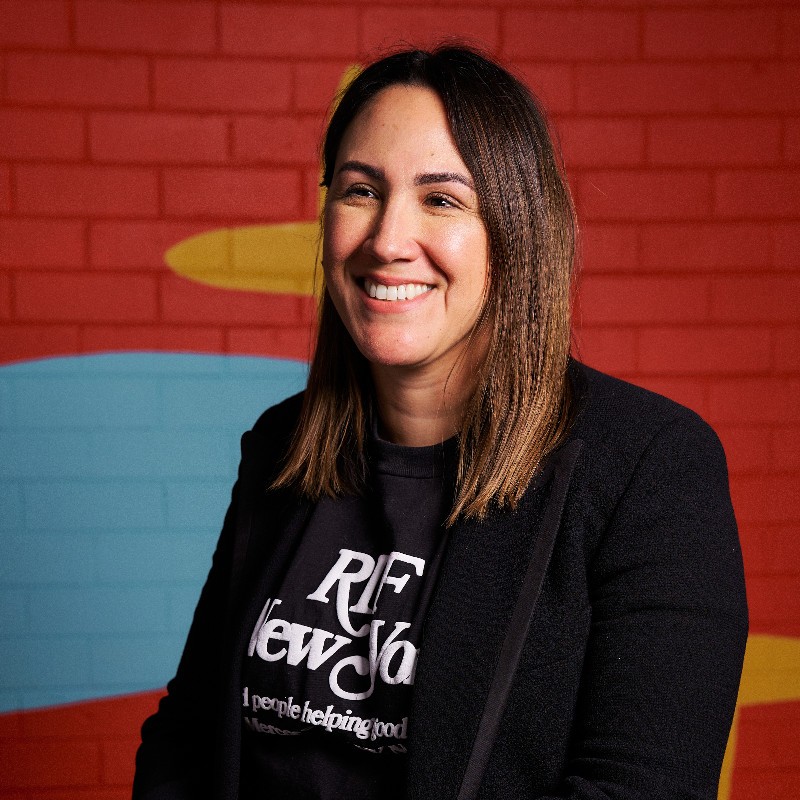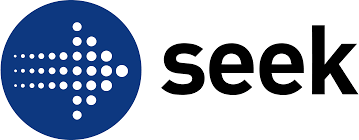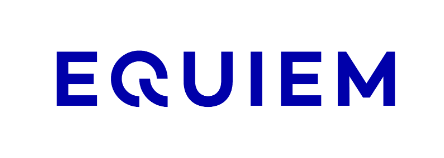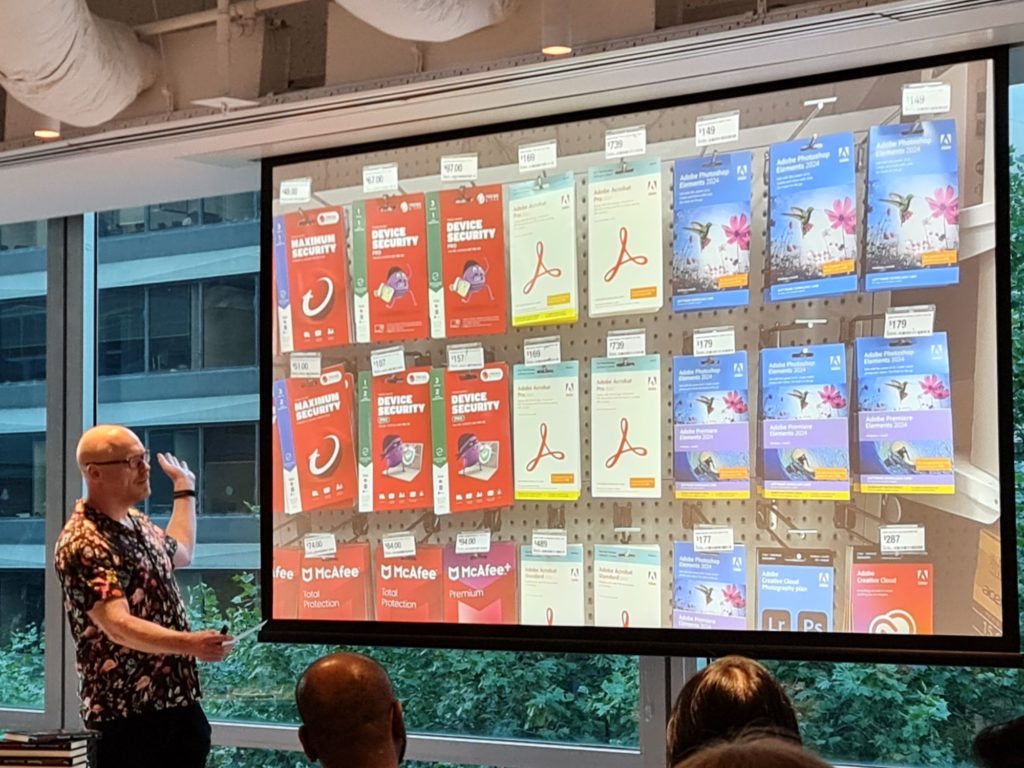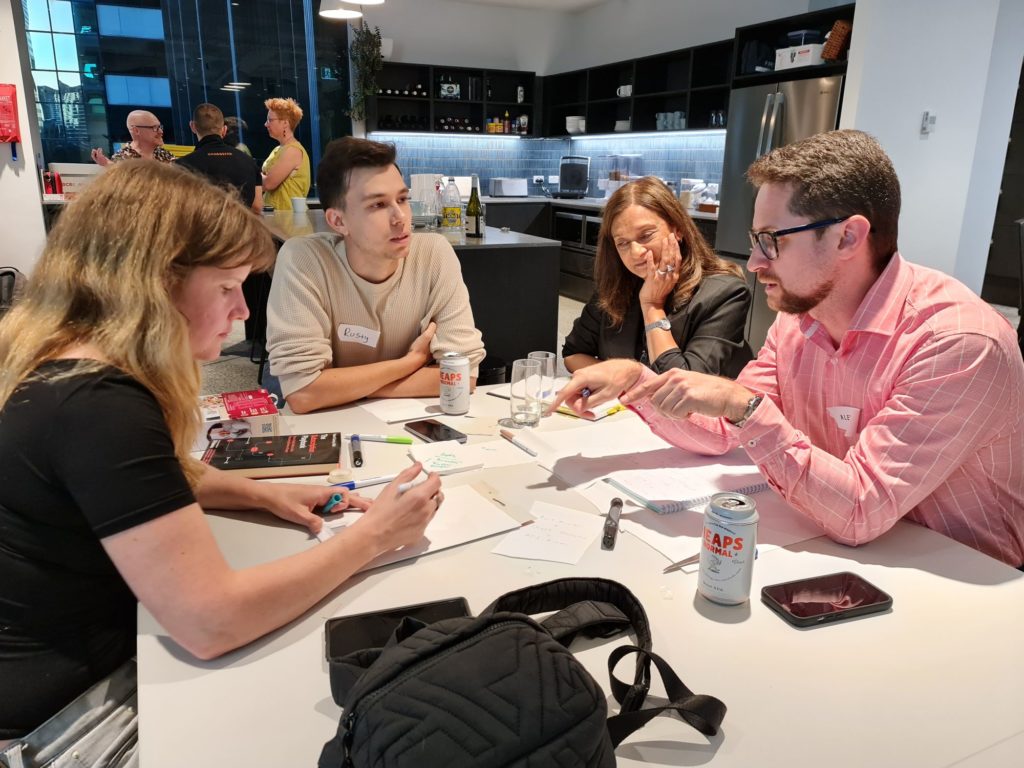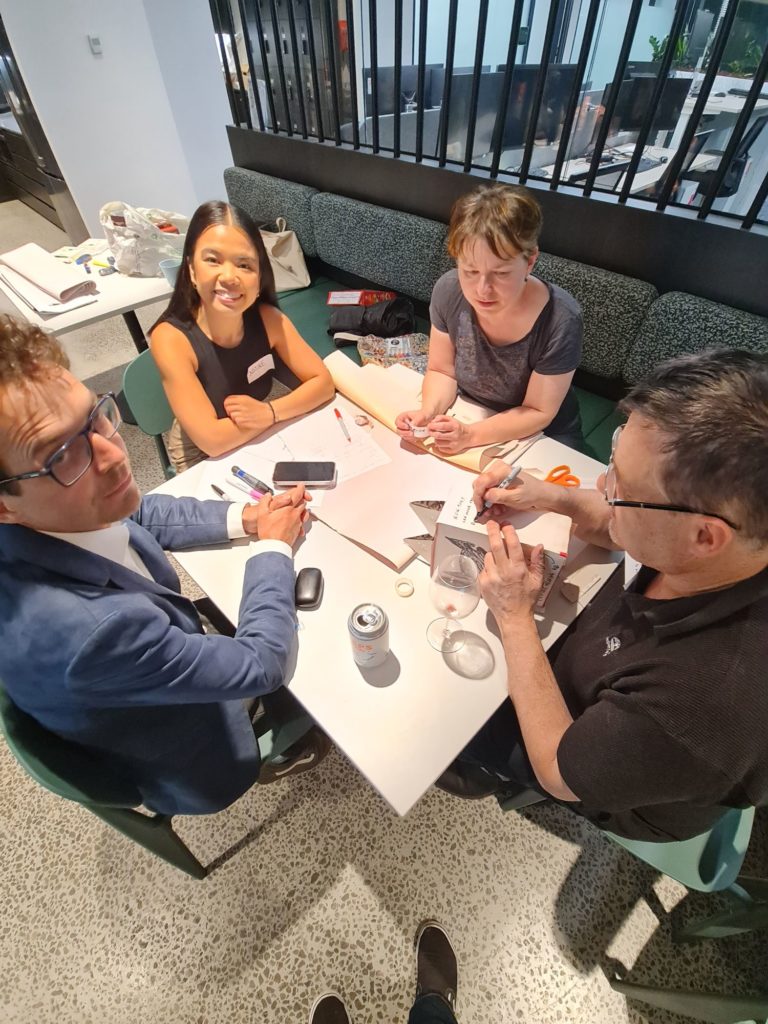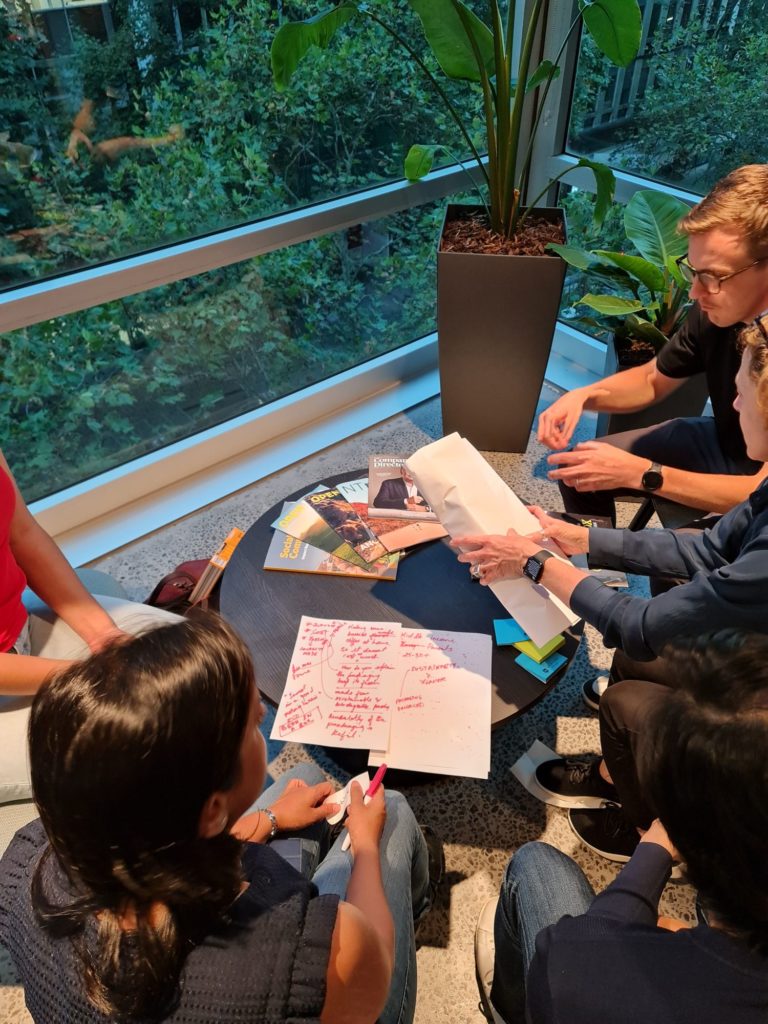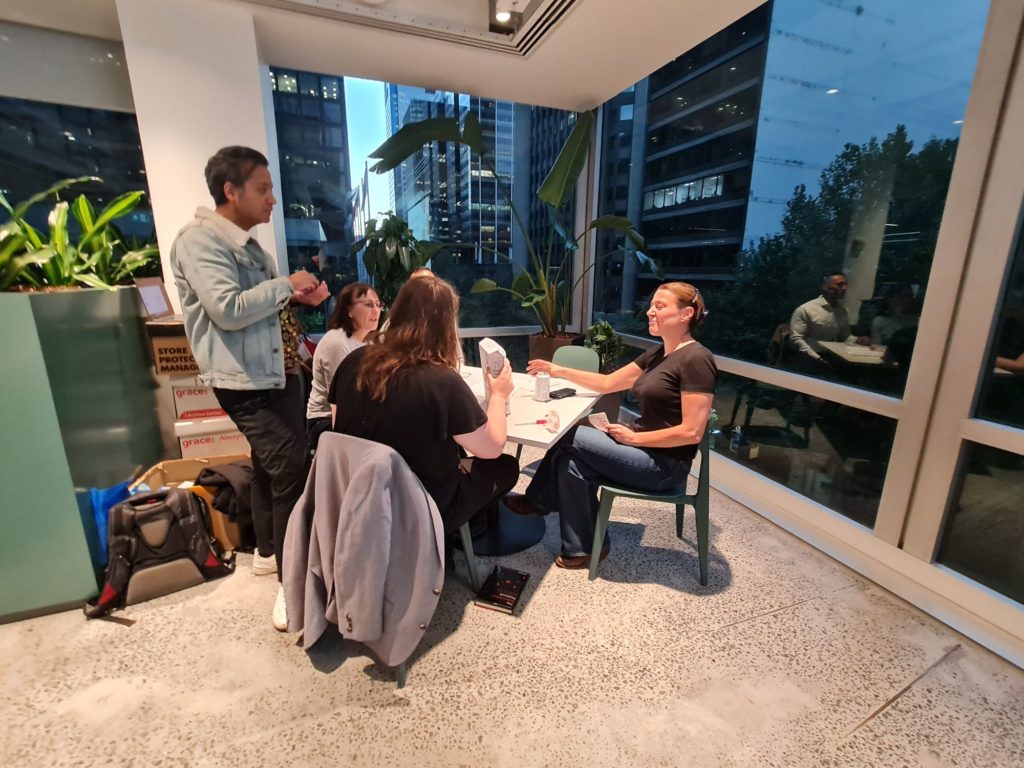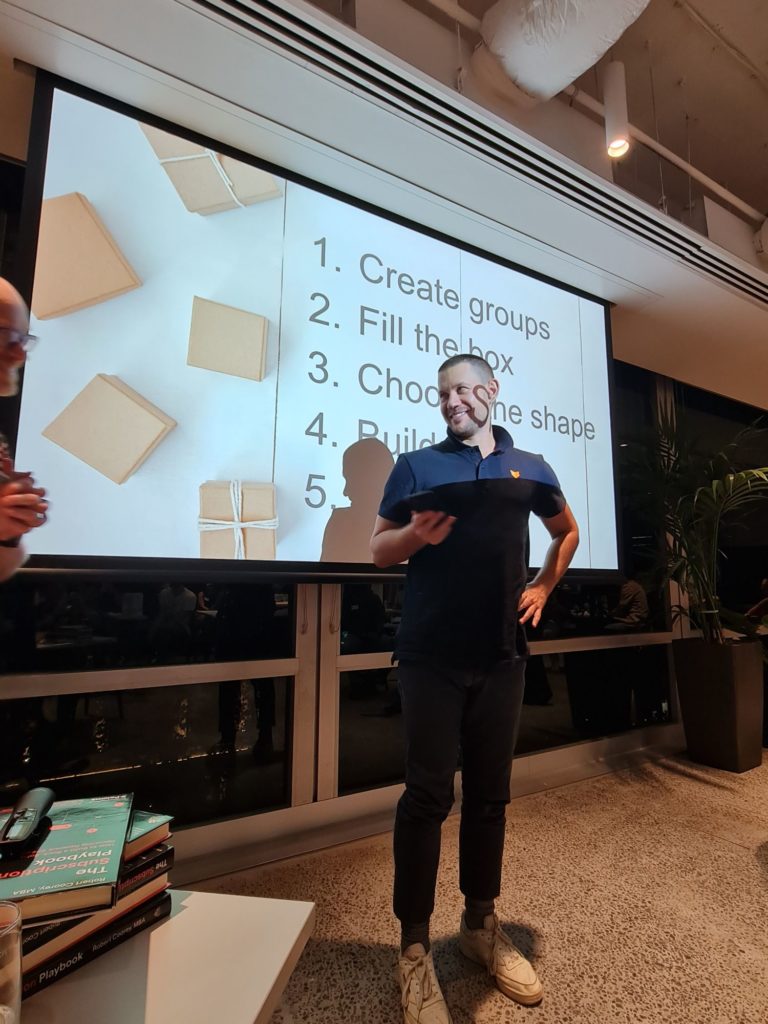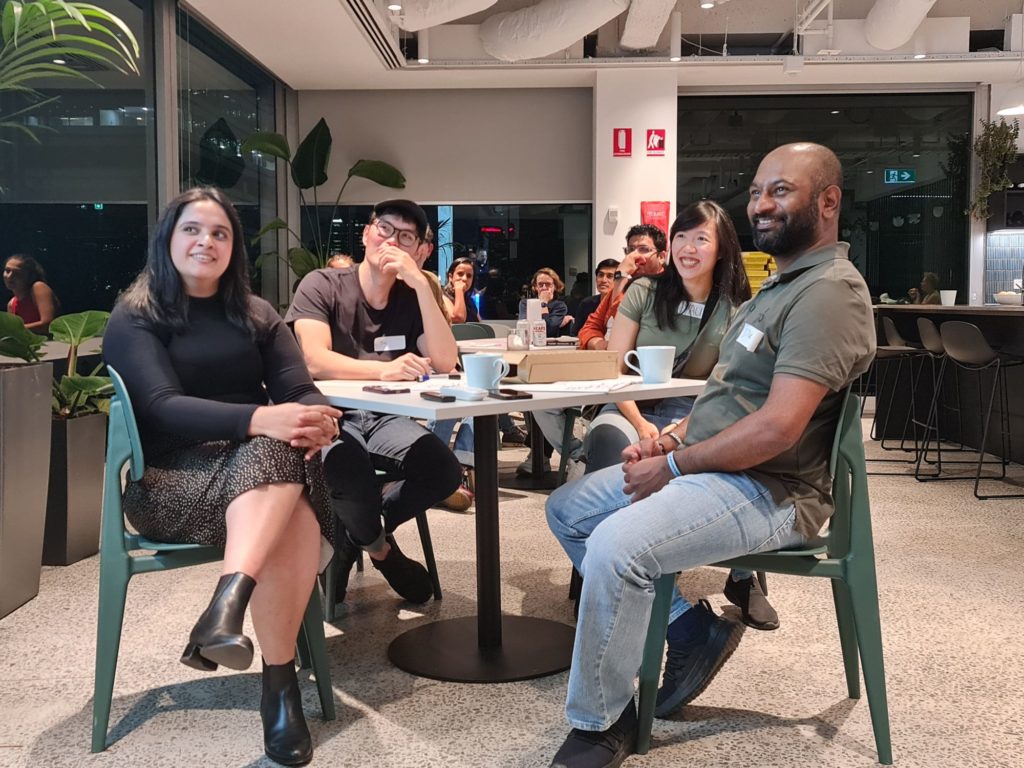In the fast-paced world of product management, we frequently discuss the strategies behind making decisions and the art of influencing stakeholders. However, a crucial aspect of the role that often goes under explored is the ability to change one’s mind and remain open to being influenced.
In this session, Lucy talked about the nuanced art of changing your mind—an essential skill for growth and effective leadership.
You’ll have belief 1 and then something happens… you receive new information or have an emotional response or there’s a rational assessment which translates into belief 2. The journey between those 2 points is not always that simple and our own biology can throw a spanner into our thinking.
So when we’re making decisions constantly and those decisions are influenced by a lot of things including our own biological & emotional reactions, how can we grow? Well Lucy brought data & analysis to this question.
First, the let’s talk about the octopus. Lucy gave us some ‘facts’ covering octopus mating to see where we sat on the believe vs not believe scale (which also illustrated that science has changed their mind over time as information and research evolved). She then challenged us with a statement that we product people make thousands of decisions but only 1 or 2 are any good. Yikes! That hurt! Do we believe it?
Bring in the SCARF model (status, certainty, autonomy, relatedness, fairness) to help us understand how our brain reacts because this journey can feel threatening, can be neutral or even rewarding! Saying we only make 1-2 good decisions in our entire career was tough. It was threatening to our status! Maybe we didn’t think it was fair or made us feel unsafe.
But if you recognise these things are happening and re-frame how you think about making decisions, growth can happen.
Lucy reflected that when she was new in her career, she was comfortable with being wrong. She was learning. It was expected because she was new and status & certainty was low. As her career progressed, she felt new pressures and expectations that she should know what she was doing. When she received contradictory information it was a threat to her status, autonomy and she felt more defensive. This led to her being less comfortable when she was wrong that translated into a slowness of being open to new ideas thus taking longer to adapt to a new idea.
One way Lucy re-framed changed the way she wrote documents. As a product person at Amazon, Lucy worked in the ‘working backwards’ style of press releases, 6 page reviews and starting meetings with silent reading before discussion of the document. While she worked with her trio to develop the document, she realised it was when it was circulated at higher levels that she was getting more clarity and good questions. She decided to be provocative in her statements early in the game so her trio and other peers would give better feedback. She re-framed that the document is about getting feedback, not about being right.
How do you know you’re making better decisions today than x years ago? How do you measure the effectiveness of making decisions? Bring in a 2×2 matrix! Lucy plotted process and decision.

Through this plotting, Lucy took on another belief – as a PM, when we make the decision we need to firmly believe it is correct but then switch quickly into how can we disprove it? How can we look at this with a different lens? What should I have done differently?
For greater success, we can seek out how to make better decisions & change our minds when needed.
During the talk she referenced
- SCARF model
- Bounce
- Evan LaPointe‘s interview with Lenny
- Thinking Fast and Slow
- Naked Statistics
- Wes Kao on managing up
- Escalating Product Decisions – an article Lucy wrote several years ago
About the speaker: As an industry veteran with over 25 years of experience, Lucy Spence has made more mistakes than most and loves sharing her experiences in the hopes others can learn what she’s learned in less painful ways. In that time, she’s gone from individual contributor to product leader a few times at a range of companies from start-ups to Amazon. As a Senior Product Manager at Octopus Deploy, you can expect to see many Octopus-based metaphors and analogies.

Catapult was our fabulous host. Thank you Catapult!
Catapult exists to unleash the potential of every athlete and team on earth. Operating at the intersection of sports science and analytics, Catapult products are designed to optimise performance, avoid injury, and improve return to play. Catapult has over 400 staff based across 24 locations worldwide, working with more than 3,800 Pro teams in over 40 sports across more than 100 countries globally. To learn more about Catapult and to inquire about accessing performance analytics for a team or athlete, visit us at catapult.com. Follow us at @CatapultSports on social media for daily updates.











